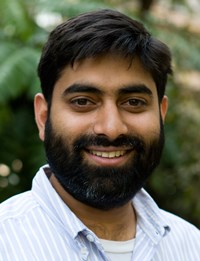Since 2009, Sankalp Forum has been bringing the voice of the social entrepreneur into the impact investing conversation. This was evident again in Mumbai this year (9-11 April) as over 1,000 delegates and 103 speakers from across the world gathered to discuss hard-pressing global challenges which could be addressed through market-driven solutions.
Highlighting innovations from across India, enterprises including Karadi Path, which delivers English programmes to over 55,000 children, and iKure, which aims to bridge the healthcare divide among the 840 million people in rural India, were recognized. Speakers at the conference included Vijay Mahajan, founder & chairman of BASIX Group; Sir Ronald Cohen, chairman of the Social Impact Investment Taskforce; and Paresh Parasnis, head of Piramal Foundation.
The underlying theme throughout the three days, and in particular the panel which I moderated, focused on the need to bring all stakeholders into the conversation. All forms of capital (grant, debt and equity), integrated networks (partnerships with government, corporate sector, social entrepreneurs) and differing perspectives (community leaders, youth, and companies) are needed to solve these wicked problems.
A case study on empowering adolescent girls in India was used to discuss the different roles required to delay marriage and childbirth and provide education and employment opportunities to girls. With 43% of all women aged 20-24 being married before the age of 18 and twice the number of adolescent mothers facing death during pregnancy, there is an urgent need to focus on this group. Delaying marriage and childbirth for adolescent girls can add USS110 billion to the Indian economy, and 90% of women’s income will be invested in their family’s welfare as opposed to 40-50% of men’s income. This becomes a significant reason to invest in adolescent girls.
On the panel, Paresh Parasnis highlighted the Piramal School of Leadership programme which has worked with the Indian Institute of Management Ahmedabad, state governments, public schools and communities to achieve the Millennium Development Goals. Anuradha Ramachandran from Omidyar Network spoke about their efforts not only to scale social businesses but also to support non-profits that focus on governance and transparency. Monique Villa, CEO of Thomson Reuters Foundation, talked about their work with lawyers in TrustLaw to ensure ‘a stronger focus on legal framework, wherein the girls’ rights are safeguarded and policy makers need to look at long-term solutions’.
The panel agreed that along with innovation and entrepreneurship, there is a need to reach out to the beneficiary group and strike a balance between trying to achieve change and working within the framework of already existing laws.
Deval Sanghavi, is partner and co-founder of Dasra, a strategic philanthropy foundation.






Comments (0)